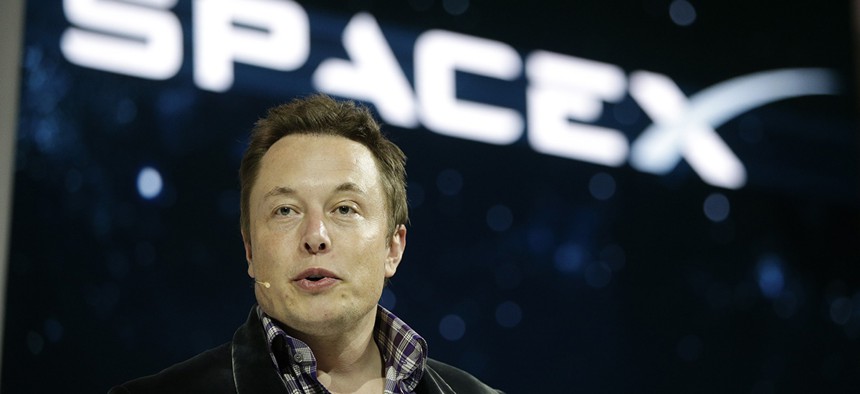SpaceX’s Lost Rocket Could Upset Global Merger and Delay America’s Human Spaceflight Plans

Elon Musk, CEO and CTO of SpaceX Jae C. Hong/AP File Photo
The fire that burst from the top stage of a SpaceX Falcon 9 rocket did more than melt aluminum and crack carbon fiber.
The fire that burst from the top stage of a SpaceX Falcon 9 rocket, quickly consuming it and the satellite it was to carry to orbit, did more than melt aluminum and crack carbon fiber on a $62 million rocket and throw another wrench into Elon Musk’s already busy day. It will have repercussions across the globe.
It could blow up an Israeli-Chinese merger deal
Spacecom, the Israeli company that built AMOS-6, is in trouble. It was in the middle of selling itself to a Chinese conglomerate for $285 million. Beijing Xinwei Technology Group aimed to integrate the company, which already operates three communications satellites, into its global telecom system.
But the merger’s finances no doubt count upon AMOS-6 being operational on time and delivering a steady stream of cash from clients such as Facebook, who leased some of the satellite’s capacity for its internet.org initiative.
But worse than the postponement, there are reports that the satellite’s insurance may not cover a loss that occurred during an engine test. SpaceCom has not yet responded to a request for comment.

The International Space Station may see a supply crunch
SpaceX operates one of the few rockets that can carry supplies to six humans currently living in orbit on the ISS. It has made two trips already this year and is scheduled for another in November. The likely delay of that trip will mean more pressure on the other vehicles to deliver.
Kirk Shireman, NASA’s program director for ISS, told SpaceFlightNow yesterday the ISS had almost fully restored its reserves after running them down during last year’s delay. But the next rocket slated to carry supplies to the ISS is also higher risk than usual: It is a new OrbitalATK Antares rocket making its first flight, after the previous iteration blew up in 2014.
There’s a waiting list to get into space
Besides its trip to ISS, SpaceX is scheduled to fly seven other Falcon 9 flights for clients before the end of the year, including SES, Iridium, Echostar, and Taiwan’s national space program. After SpaceX’s last failure, it took the company about six months to get back to business. Those kinds of delays can mean trouble for operators whose financing often depends on the timing of their launches.
With other launch companies like ULA and Arianespace already facing crowded manifests, it could be hard for them to find alternate options. And SpaceX could lose millions of dollars because of these delays.
The U.S. will have to wait longer to fly humans in space again
SpaceX’s has two kinds of critics: The ones who say it goes too slow—why doesn’t Musk meet his deadlines?—and the ones who say it goes too fast (often NASA veterans). Today, we’re hearing from the latter group. We still don’t know the cause of the explosion, but already people like Scott Pace, a former NASA official, are speculating about management problems: “To what extent was human error part of this? And if so, why? Are you running your people too hard? What are your safety requirements?”
While the company continuously underscores its commitments to safety and sustainable operations, there’s no question a lengthy return-to-flight will draw resources away from SpaceX’s efforts to launch a new heavy rocket, reuse a Falcon 9 rocket, and, perhaps most importantly, fly humans in space for NASA for the first time since the Space Shuttle’s retirement in 2011.
Now, SpaceX and Boeing are competing to be the first private company to fly humans in space. SpaceX was seen as having a slight lead, hoping to launch before the end of 2017, while the veteran aerospace giant said February 2018 at the earliest. Both of those dates were seen as ambitious, and SpaceX’s accident seems to confirm that U.S. astronauts will depend on Russia until 2018.
More than a year out from its only failed commercial mission, SpaceX had regained its luster as cutting-edge rocket company. Now, it will need to shore up that reputation again.
NEXT STORY: White House to Host Its Own SXSW



